Bahman Jadavieh, the great Sassanid general and the Arab invasion
Bahman Jadavieh or Bahman Jadoo or Bahman Jazvieh or Bahman Zolhajeb or Bahman Deraz Abro or Bahman Mardanshah in the 630s in the late Sassanid era and during the Arab invasion of Iran, the commander of the Iranian corps in the literacy zone (Iraq) Was. He is best known for his command of the Bridge War. The Bridge War was the only war in early Islam between Iran and the Arabs that led to the victory of the Iranians.(1)
The victory of the magic avalanche in the bridge war against the Arabs
Khalid ibn Walid between 632 and 633 AD during the wars was able to capture Hirah, the capital of Lakhmia. After capturing Abu Bakr, he was sent to Syria and was replaced by Muthanna bin Harith Sheibani in Iraq.. With Khalid's departure, most of the cities and towns that had been plundered by the Arabs or that had agreed to pay jizyah and tribute, again fell under the rule of the Arabs.. Rostam Farrokhzad, who had gained power at this time, forced the literate peasants to repel the Arabs and sent someone to every settlement to incite the people against the Arabs.[۲] In 634 AD, Bahman Jazvieh was sent to literacy by Rostam Farrokhzad from Ctesiphon with the IRGC and some warlords; On the other hand, Abu Obaid ibn Mas'ud Saghafi also attacked Lashkar Gah on the west bank of the Euphrates.. There was a bridge over the Euphrates. Abu Ubayd crossed the bridge with his army, and during a fierce battle, Abu Obaid and about 4,000 of his troops were killed in what became known as the Bridge War, and the rest of the group fled.[۳] Muthanna ibn Harith Sheibani was also wounded in this battle and died a short time later. Bahman Jadavieh wanted to follow the fugitives, but it was reported that a dispute had arisen in Ctesiphon, so Bahman took the path of Ctesiphon.. According to narrations, after this heavy defeat, Umar ibn al-Khattab did not mention Iraq for another year.[۴]
Bahman was killed in the battle of Qadisiyah
In 637 AD, the battle of Qadisiyah took place. On the second day, the Arab relief army, which had arrived in the evening, entered the field and there were hand-to-hand battles between the heroes of the two corps.. Three Iranian commanders, including Bahman Jadavieh, were killed during the fighting.[۵]
Error and confusion in reports related to Dhu al-Hajib
Some historians have mentioned his name as Mardanshah and his title as Zulhajeb: He was nicknamed Dhu al-Hajib because he closed his thick eyebrows so that they would not fall on his eyes.. But this reason is not very convincing, because apparently others in the same period were also called Zulhajib and Zulhajbeen.. Noldeke wrote that the reason why several people were given the title of Dhu al-Hajib may have been due to the position and title they held in the Sassanid system.. It can also be doubted that Mardanshah and Zolhajeb were the name of Bahman, relying on the narrations of Muslim historians, because not only Tabari never called him Mardanshah, but in some reports Mardanshah and Zolhajeb as two but contemporary and together , Have been raised. In some narrations, Mardanshah has been called Zulhajib or Zulhajbeen, but he has been considered other than Bahman Javiyeh.. Tabari also mentions in a narration related to Nahavand war that when Zolhajeb was killed, Bahman Jadavieh replaced him.. It should be noted that sputum is seen in the reports of commanders and troops who were called Zulhijab.[۶]
Resources in this section
1 Encyclopædia Iranica | Articles
2 زرینکوب. History of Iran after Islam. ص 308
3 زرینکوب. History of Iran after Islam. ص 311
4 زرینکوب. History of Iran after Islam. ص 312
5 Anahita Purdavud, p. 377
6 The Great Islamic Encyclopedia, Bahman Jadavieh(Free encyclopedia Wikipedia)
———————————————
Bahman Jadavieh
Quick: 13
page number :5283
Bahman Jadaviyeh, one of the famous Sassanid generals on the eve of the arrival of Islam in Iran. Little is known about his condition, which historians of the Islamic era say only about his struggles with Muslims.. This little bit is not free of sputum and mistakes.
First of all, the discussion about the name and title of this commander can be interesting; What, some historians have mentioned his name as Mardanshah and his title as Zulhajeb, and: He was nicknamed Dhu al-Hajib because he closed his thick eyebrows so that they would not fall on his eyes.(Blazeri, 251; Tabari, 3/455; Abu Ali al-Muskawiyyah, 1/187; Ibn Athir, 2/438). But this reason is not very convincing, because apparently others in the same period were also called Zulhajib and Zulhajbeen.(Tabari, 4/128; Holy, 5/181; Ibn Athir, 2/441) Which may have been due to the position and title they held in the Sassanid system(Also do not: نولدکه ، 226).
Moreover, it can be doubted that Mardanshah and Zulhajab were the name of Bahman, relying on the same narrations of Muslim historians, because not only Tabari never called him Mardanshah, but in some reports Mardanshah and Zulhajab as two - but contemporary And together - have been raised. In some narrations, Mardanshah has been called Zulhajib or Zulhajbeen, but he has been considered other than Bahman Javiyeh.(Abu Ali al-Muskawiyyah, 1/190; Tabari, 3/459, 465; Ibn Athir, ibid., Also 435, 442, 3/19; Holy, ibid). Tabari also mentions in a narration related to Nahavand war that when Zolhajeb was killed, Bahman Jadavieh replaced him.(4/114، 116، 128).
Due to these points and also the very important point that in none of the reports related to Jasr before the war, Bahman Jadavieh has not been called Zulhajeb(For example, in the history of Tabari 6 Case and in Al-Kamil Ibn Athir 4 Item), It may be said that Zolhajeb Mardanshah or Zolhajeb and Mardanshah are other than Bahman, but both or all three have been open and accompanied in some of the final events of the Sassanid period and their roles and names have been confused with each other.. The reference of historians to the murder of Dhu al-Hajib in the battle of Azib, and the repeated presence of him and Bahman in the battle of Nahavand can confirm this confusion..
On the other hand, Bahar has reported that because Bahman had the rank of "Sarband" - the rank he bestowed on Ferdowsi Shah - and he wore a Sarbandi on his forehead, he was called the Four Eyebrows, and for this reason the Arabs called him Dhu al-Hajib.. According to him, "four eyebrows" has been distorted as "four eyebrows", and gradually as "magic".(P.97 275-276). What he has said about the title of Sarband and Dhu al-Hajib - especially if we pay attention to the narration of Blazeri and later writers who have interpreted the closing of Bahman's eyebrows as his greatness - is not unreasonable, but the distortion of Charbrouyeh to magic is not acceptable..
The accuracy of some historians' reports and the study of the word magic can give a convincing interpretation.: Blazeri, who named him Rustam, stated that Khosrow Anoshravan had given him the title of "Bahman".(same place; نك: Yosti, 374, who mentions the name of Bahram Bahman Afrandad); It is also clear from a vague and incomplete narration of Tabari that Bahman, the viceroy and representative of the Shah of Iran or the Iranians in Bahman Rooz(3/355) And of course he was in Bahmangah and the title of Bahman is from this; But linking the word magic to magic is completely unlikely. This word can be composed of "road"(In Avestan yāta-, next to yāt and yād, means share and interest)(Bartholomew, 1283; Nyberg, 225; A part: Mackenzie, 97) And possession suffix «- "Vie" means "beneficiary". Other high-ranking Iranian men in the same period, such as Hormoz Jadavieh, also enjoyed this attribution.(Tabari, 3/411; Ibn Jozi, 4/123-124).
However, for the first time in the events of 12 AH / 633 AD in the battle of Waljah, Bahman is mentioned as the commander of an Iranian corps, which by the order of the Shah with the help of Andarzghar(Therefore: اندرزگر) He left and apparently did not reach the battlefield(Tabari, 3/353; Ibn Kathir, 6/345). In the same year, following the alliance of literate Christians and Iranians against the Arabs, Bahman Jadaviyeh, who was in Qusyana, was ordered by Ardashir to go to Ulysses to fight, but he sent Jaban there and himself to declare allegiance and renew the covenant. He went to Ardeshir. In any case, Bahman did not fight and Jaban was defeated(Tabari, 3/355-356). From these narrations and some other reports about the wars in the Iraqi literacy zone, it is clear that he was superior to many Iranian emirs and rulers in this region.(Also do not: Homo, 3/369, 374).
The fame of Bahman Jadaviyeh in the history of this period is due to the battle of Jasr, which is also known as the battle of Qarqos, Qus'al-Nataf and Marouha.. In Ramadan 13 / November 634, after the fall of Barosama and the battle of Saqatiyah in Kaskar, Bahman Jadavieh, on the orders of Rostam Farrokhzad, the IRGC took the Arabs to war.. The presence of the flag of Kavian in this campaign is a sign of Bahman's highness and the importance that the Iranians attached to this war.. Bahman broke on the other side of the Euphrates, and Abu Ubayd al-Saghafi and Muthanna ibn Haritha landed on the other side in a place called Marwah.. Avoid avalanches for them to come this way to fight, or to go beyond themselves. The Arabs crossed the Euphrates and were severely defeated after a fierce battle(End of the same month). Abu Ubayd was killed and his wounded Muthanna died, as a result of which he later died. Bahman wanted to pursue the attackers in order to complete their work, but it was reported from Madain that there was a division between the Iranians and the Persians, and that the Persians had conspired against Rustam.. Bahman also left the Arabs and returned to Madain(Blazeri, 251-252; Dinuri, 113; Tabari, 3 / 454-459; Abu Ali al-Muskawiyyah, 1 / 187-190; Ibn Athir, 2/438; A part: Ibn A'tham, 1/168-170).
In the following events, ie the series of Qadisiyah wars, only Dhu al-Hajib is mentioned, without mentioning Bahman.: He ruled over a literate region and, at Rostam's command, took command of the leading or agile riders.(Tabari, 3/510, 514-515). Only in the mention of the incident of Aghwas - one of the battles before the main Qadisiyyah - in one of Tabari's narrations, and Abu Ali al-Muskawiyyah's account of Bahman is mentioned in such a way that because Dhu al-Hajib went to a hand-to-hand battle with Qaqa ibn Amr, he called himself Bahman He was killed in the same battle(Homo, 3 / 542-543; Abu Ali Muskawiyyah, 1/202; A part: Khalifa, 1/120).
The narration of Bahman being killed in Aghwas can be doubted for two reasons: 1. بلاذری(ص 255) And Khalifa bin Khayyat(same place) In the description of the battle of Qadisiyah, and Tabari in another narration of the same event(3/545), And then Ibn Athir(2/473-474) In mentioning the war of the Aghwas, they only mentioned Dhu al-Hajib and did not mention that he called himself Bahman.. 2. These are both(Tabari 4/114, 116, 128; Ibn Athir 3/10) It has been reported that in the Nahavand war - about 6 The year after Qadisiyah - after the murder of Dhu al-Hajib, Bahman Jadavieh took his place, meaning that in their opinion, the person who was killed in the riots was not Bahman.
To resolve this contradiction, Bahar, by acknowledging the murder of Bahman in Aghwas, turned to the deductive correction of Tabari's narration, and said: Zolhajeb in Nahavand refers to Bahman's son, Zardaq Ibn Bahman, who was named Zulhajeb after his father.(ص 276). In addition, there is no evidence to support this view, Blazeri(ص 303) And holy(5/181-182) Both of them explicitly call this Dhu al-Hajib the men of Shah Dhu al-Hajib.
From all the above reports, it is probable that historians have confused between Bahman Jadaviyeh, who was also called Zolhajeb, with Zolhajeb Mardanshah, and another Zulhajeb, who all participated in these wars, and not only gave each other names and titles. Rather, they have not been able to distinguish their roles in these events. Therefore, it can be assumed that Bahman is alive until Nahavand battle; In the Isfahan war, only Shahriyar bin Jadavieh was mentioned as one of the Iranian commanders(Ibn Athir, 3/19).
Sources: Ibn Athir, Al-Kamil, Ibn A'tham Kufi, Ahmad, Al-Futuh, by the efforts of Abdul Maid Khan, Hyderabad, 1968; Ibn Jawzi, Abdul Rahman, Al-Muntazm, by the efforts of Muhammad Abdul Qadir Atta and Mustafa Abdul Qadir Atta, Beirut, 1412 AH; Ibn Kathir, Al-Badaiya; Abu Ali Muskawiyyah, Ahmad, The Experience of the Nations, by Abolghasem Emami, Tehran, 1987; Blazeri, Ahmad, The Conquest of the Countries, by Dekhoyeh, Leiden, 1866; Bahar, Mohammad Taghi, Margins on the Complex of Chronicles and Stories, Tehran, 1318; Khalifa Ibn Khayyat, History, by Soheil Zakar, Damascus, 1968; Dinuri, Ahmad, Al-Akhbar al-Tawwal, by Abdul Moneim Amer, Cairo, 1960; Tabari, History; Moghaddasi, Motahar, Al-Bada 'wa Al-Tarikh, by Kalman Hawar, Paris, 1916;:Bartholomae, Ch., Old Iranian Dictionary, Berlin 1961; Justi, F., Iranian name book, Hildesheim, 1963; MacKenzie, D.N., A Concise Pahlavi Dictionary, London, 1971; Nöldeke, The., History of the Persians and Arabs in the Sasanian Period, Leiden, 1973; Nyberg, H. S., A Manual of Pahlavi, Wiesbaden, 1974.
Sadegh Sajjadi


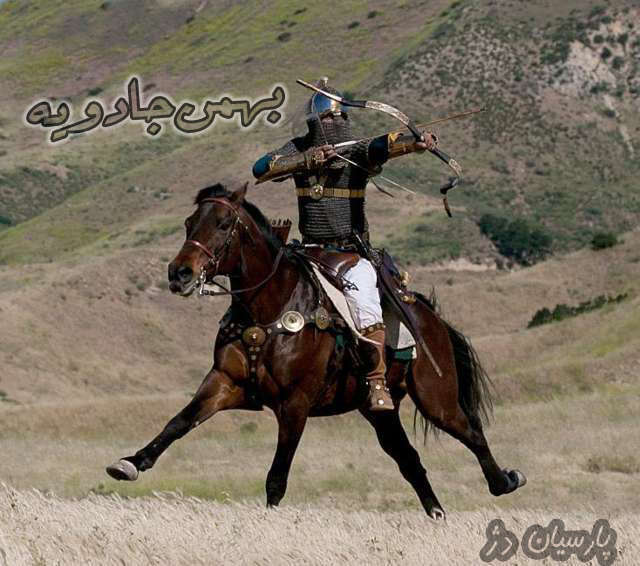
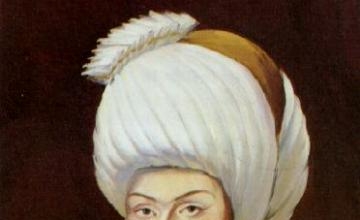
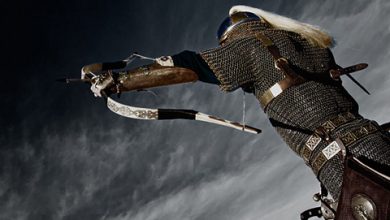
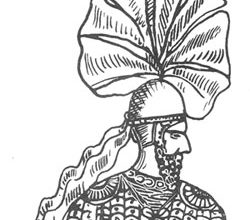
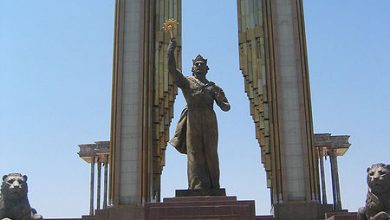
[…] Bahman Jadavieh – Parsian Fortress Parsian Fortress […]
Of course, it is obvious that we should not forget our identity and history. But staying in the past and just boasting about the past does not cure the pain of now and the present. Nations that stay in the past for a long time are losing their future.
And nations that forget repeat history .
درود
You said that the nations that stay too much in the past lose their future, this sentence is meaningless and wrong, what do you mean by the past?! And how many countries remain in the past?! In general, this sentence is a common mistake, we Iranians mean to be proud of the culture and achievements of our ancestors in order to revive the identity and spirit of being a leader and a national builder.
These were the great commanders that we have roots now, we all owe them blood, and in the end their blood will be avenged by the sworn children of this land and water. They only weave evil.
Jazuyeh is the name of a region in Ramhormoz, which is currently called Jaizan
Bahman Jazuyeh or Ibn Muljam was the one who killed Imam Ali (Part of the comment was removed)
There is no such thing as an outsider, and this has been spread by the enemies of Iran and some extremist nationalists
In terms of historical period, they do not even meet
It is like saying that Alexander did not attack Persepolis and it was Genghis who attacked Persepolis.
It is even wrong to raise this issue
Historically, the evidence is so meaningless that it is even wrong to mention it
Ø ¢ یا Ù… یدا٠† ید اسم Ú © Ù „Ù… Ù ‡ جازÙ%<۸ی٠اسم قدیم Ù… Ù † Ø · Ù‚Ù ‡ ای Ø¯Ø ± Ø ± ام Ù ‡ Ø ± Ù… ز است Ú © Ø ¯Ø ± Øا٠„ØØ§Ø¶Ø ± جایزا٠† خوا٠† د٠‡ Ù… یشود